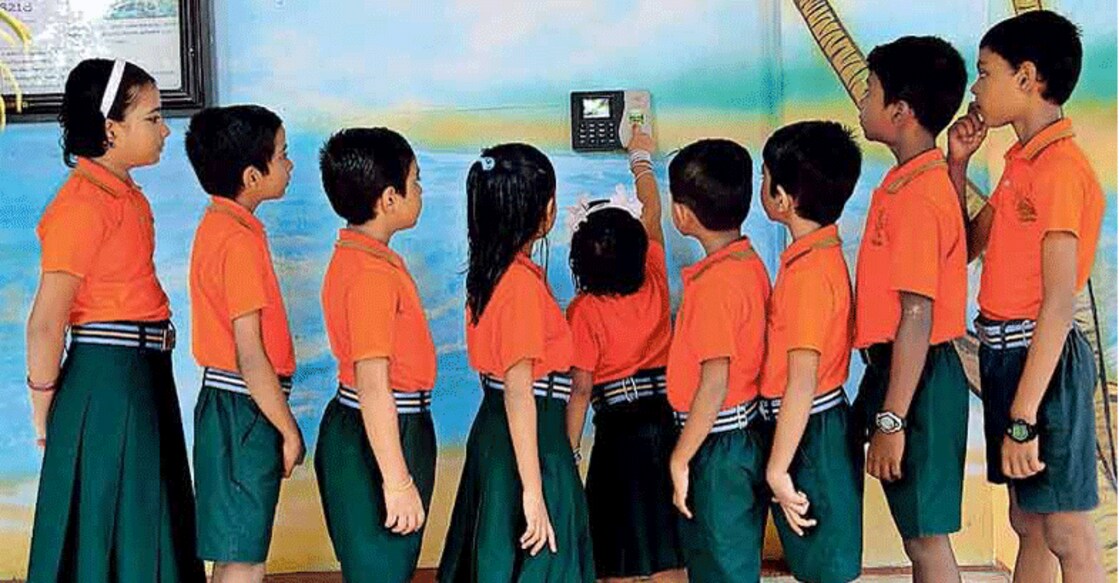Biometric attendance system to curb over-reporting by Kerala schools

Mail This Article
Thiruvananthapuram: Kerala government has been annually taking the headcount of students in order to keep a tab on dropout rate as well as to ascertain the number of schools with low strength. Over time, government school authorities resorted to malpractices such as showing inflated numbers of students in order to avoid shutdown by authorities. Following widespread complaints about malpractices, the present system of assessing the number of students through a single-day verification process will be replaced by a scientific biometric attendance system.
So far student strength was assessed with a casual headcount on the sixth working day of the academic year. The verification formed the basis of fixing staff for the academic year.
The verification process gave rise to large-scale malpractices in several public schools across the state. Students from nearby unaided schools were being brought into aided schools to inflate the number of students during the headcount. School authorities resort to such malpractices to ensure that existing posts are retained and also for creating additional posts.
The General Education Department aims to end such tricks with the introduction of a biometric attendance system.
Other measures
As malpractices went on despite the deployment of supercheck squad to crosscheck verification that day itself, the government is also planning to bolster this supervisory wing.
At present the supercheck wing has only two zonal offices, one at Thiruvananthapuram and other at Kozhikode. Its zonal office has minimal staff comprising a deputy secretary, assistant supercheck officer and two clerks. It is impossible to conduct superchecks in all schools with low staff strength. Additional personnel could be recruited as per the latest plan.
At present supercheck is being conducted in schools from where complaints of malpractices are reported. Though, District Education Officers (DEO) and Assistant Education Officers (AEO) are also entrusted with the task of conducting surprise checks, it is claimed that the details of their planned visits are leaked to school authorities in advance.
Govt nod for appointments
In order to contain large-scale corruption in the name of teacher appointments, government is considering new regulations. Hereafter, public and aided schools may require the nod of the government to make fresh appointments.
During his recent budget speech, Finance Minister T M Thomas Isaac had made it clear that only appointments with prior government sanction would be approved.
He also pointed out that the present system of creating posts even if there was an increase of one student should end. Currently, the teacher-student ratio as per the Right to Education Act is 1:30 for Lower Primary, 1:35 for Upper Primary and 1:45 for High Schools. School managements often created an additional post if this ratio was slightly breached. With the latest move of the LDF government, such appointments will get regularised after getting the sanction of the AEO and DEO.
As per the Right to Education Act new appointments should be conducted after assessing the student strength by considering the school as a whole unit. However, in Kerala the appointments of teacher are being conducted after considering the strength of a class. The government was hence planning to bring in legislation to end such disparities between the Right to Education Act and Kerala Education Rules.
The new legislation will also have a clause which mandated the prior sanction of the government for teacher appointment.

